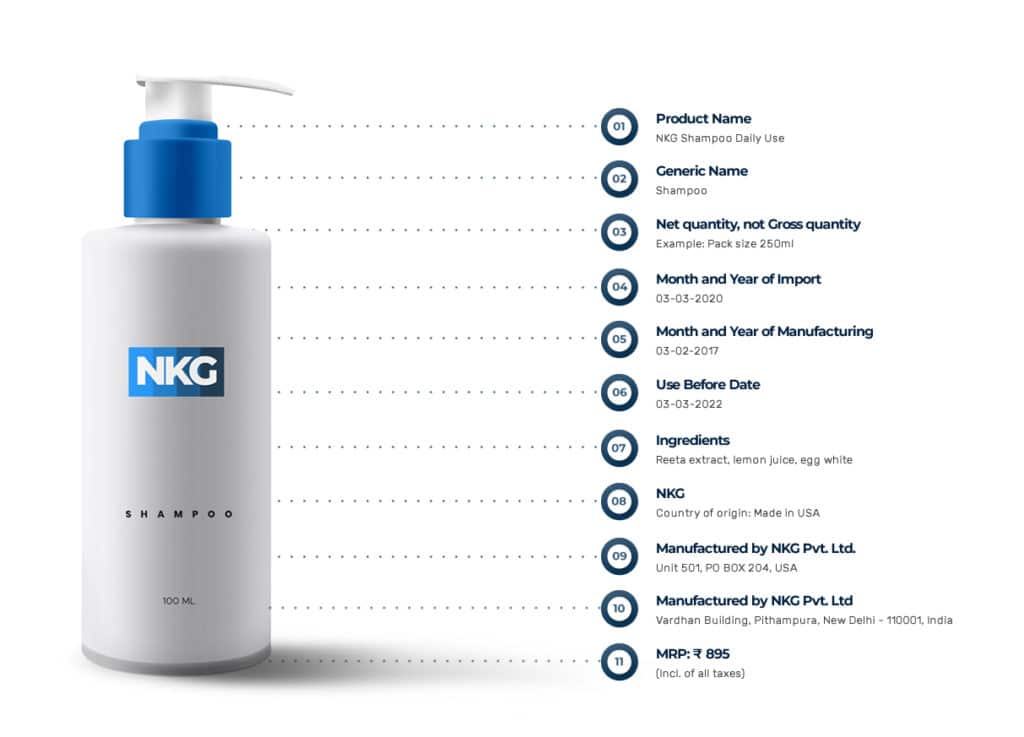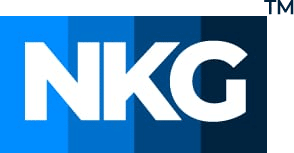PART 1
The Legal Metrology (PACKAGED COMMODITIES) RULES 2011
Introduction & MANDATORY DECLARATION ON LABELS (Rule 6)
Under the umbrella of The Department of Consumer Affairs, Food & Public Distribution, the Directorate of Legal Metrology is constituted as a separate wing in India.The rules, compliances, standards are enforced under the Legal Metrology Act & Rules through the central head Quarter in New Delhi, from where this is delegated to the respective states for ensuring effective and ongoing compliance of the Acts & Rules.
In the Legal Metrology Act, various rules have been framed from time to time. One of the most important rules, relating to the manufacture, import, sale, distribution , retail of pre-packed or packaged commodities is The Legal Metrology (PACKAGED COMMODITIES) RULES 2011.
The objective of Packaged Commodity rules is to ensure uniformity in labels as per the standards and rules laid out in these rules for products either imported or manufactured in India so that the consumer’s interests are safeguarded. Many important declarations on Labels have been made mandatory under these rules across product categories.
According to the Ministry of Consumer Affairs, Compliance to Legal Metrology ACT 2009 by stakeholders ensures precision & accuracy in measurement which plays very vital role in day to day life. A transparent and efficient legal metrology system inspires confidence in trade, industry and consumer and brings harmonious environment for conducting business.
Scope of Legal Metrology: What products are covered
Under the Legal Metrology Packaged Commodities Rules 2011, the most important aspect is to understand the SCOPE of a Packaged commodity or pre-packed commodity.,
Pre-packaged or pre-packed commodity’ is defined as, ‘a commodity which without the purchaser being present is placed in a package of whatever nature, whether sealed or not so that the product contained therein has a pre-determined quantity’.
Many products such as beauty and cosmetic products, baby food, weaning food, biscuits, breads excluding buns, cereals and pulses, coffee, tea, any material which can be termed as beverages, edible oils, vanaspati ghee, butter oil, milk powder, non-soapy detergents (powder), rice (powdered) flour, atta, rawa and suji, salt, soaps including laundry soap, non soapy bars and cakes, All types of toilet bath soaps (cales) aerated soft drinks, non alcoholic beverage, mineral water and drinking water, cement in bags, paint and varnish etc. curd, electronics, toys which are packed in a package or in any shape or size of the container, but the weight of the packet is not more than 50kg and not less than 10g/10ml that all types of packed goods are called a packaged commodity and are covered under the scope of The Legal Metrology (PACKAGED COMMODITIES) RULES 2011.
The Important One : Mandatory Declarations on Labels as per Rule 6
Let us take a deeper look on the Mandatory Declarations that need to appear on on Product Labels/Packaging.

Name and Address of the Importer OR packer OR Manufacturer.
As per Clause 6(1) a, of these rules, Packaged commodity must contain the name and address of the manufacturer in India. If the manufacturer in India and the packer of the product in India are two separate entities then both the name and address of the packer and the manufacturer need to be included on the label of the product. In case, the Products are imported then the Name and address of both the Importer and manufacturer need to be included.
As per Clause 6(1) aa, the country of origin i.e. the country of manufacture of the products need to be included on the product labels.
As per Clause 6 (1) b, the common or generic name of the product needs to be mentioned on the product labels. In case of a single product, the common or generic name needs to be included on the package.
In case of a combo, or a set of products being sold as one product, then the common or generic name and quantity of each product in the combo must be mentioned on the package.
Further in these rules, for combo Products as per Clause 6(1) c, in case of individual products the net quantity needs to be mentioned mandatorily. In case of a combo product or a set of products being sold as one product name and quantity of each product must be mentioned on the label.
Information on Best Before or Use before and month of year Manufacturing/Packaging/Import of the packaged product in India should be mentioned on the product labels as per Clause 6(1)d and Clause 6(1)d(a). The month and year of Manufacturing/Packaging/Import of the packaged product in India needs to be mentioned on the product label and Best Before or Use Before to be mentioned in Month and year format. For cosmetic products, the labels should follow Rules 148 of Drugs & Cosmetics Act 1945.
If a product may become unfit for human consumption after a certain period, then the Expiry date needs to be mentioned on the product label.
Importantly, for the Declaration of MRP on the product label of a packaged commodity, can be done in any one of the following ways under Clause 6 (1) e.
| Clause 6(1)e | Retail Price/MRP | MRP inclusive of all taxes to be rounded to nearest Rupee or Paise 50 |
| Clause 6(1)a | Retail Price/MRP | Maximum or Max. retail price Rs. or ₹ xx.xx (inclusive of all taxes) |
| Clause 6(1)b | Retail Price/MRP | Maximum or max. retail prices Rs. or ₹ xx.xx inclusive of all taxes |
| Clause 6(1)c | Retail Price/MRP | MRP Rs. or ₹ xx.xx inclusive of all taxes |
| Clause 6(1)d | Retail Price/MRP | MRP Rs. or ₹ xx.xx (incl. of all taxes) |
It is to be noted that by no means no one is allowed to sell any packaged commodity at a price which is higher than the MRP declared on the product label.
At the same time, there are provisions laid in the rules wherein there is are highlighted in case anyone wants to increase the MRP once declared.
Under Clause 6 (1) f regarding the declaration of sizes on a package, Where the size of the commodity contained in the package are relevant, then such sizes need to be mentioned on the package. Where the dimensions of the commodity of a package are relevant then these dimensions need to be mentioned on the package, and if dimensions of different pcs are different the dimensions of each such different pcs shall be mentioned on the package of the product.
As per Clause 6(2), it is mandatory to ensure that Each package should have Name, address, email and telephone number of the person who can be or of the office that can be contacted in case of complaints
Under Clause 6 (10) For E-Commerce entity such as Amazon, Flipkart, Bigbasket, Myntra etc, it is mandatory to ensure all mandatory declarations in sub-rule 1 of these rules on the digital and electronic network used during eCommerce transaction except the month and year in which commodity is manufactured or packed.
In addition to the above mandatory declarations under Packaged commodity Rules 2011, manufacturers or importers are allowed to include their internal codes such as barcodes, QR codes, GTIN Codes, or external logos or codes such as any issued from other government agencies.
EXCEPTIONS:
The above provisions of Chapter II of Legal Metrology (PACKAGED COMMODITIES) RULES 2011 DO NOT apply in some cases as below:
- Packages of commodities containing quantity of more than 25 kilograms or 25 litre
- Cement , fertilizer and agriculture farm produce sold in bags above 50 kilograms and
- Packaged commodities meant for industrial consumers or institutional consumers
To Conclude:
The Directorate of Legal Metrology, under the Legal Metrology (PACKAGED COMMODITIES) RULES 2011 has been constantly on the move to enforce strict compliance to the mandatory labelling declarations. Therefore, it is critically important to understand the legal nature of what appears on a product and what are the regulatory obligations associated with it.NKG team is a seasoned team of thorough and transparent professionals. Our experts have spent years working on such cases and understand the finer print of Legal Metrology.


in numbers from
regulatory track record
5000+
INTERNATIONAL BRANDSRegistered
100k+
Products Registered
100%
transparency & trust
proudly SUPPORTING
trade commiSsions
NKG keeps in Close communications with various Trade Commissions, Business Chambers, embassies of many countries on various existing & new Rules & Regulations of government of India
member of
indian beauty & hygience association
our renowned
associates
contact nkg
we help you meet your compliance needs
NKG has a Dedicated and Efficient team of experienced regulatory professionals who have Registered more than 2000 brands until now who can help you Plan your regulatory needs and smoothen the process for Regulatory approvals. Strategically located in New Delhi, the “regulatory “ capital of India, NKG makes a head start by following its unique time tested “Step-by- Step “ process that puts a lot of method in between the madness.